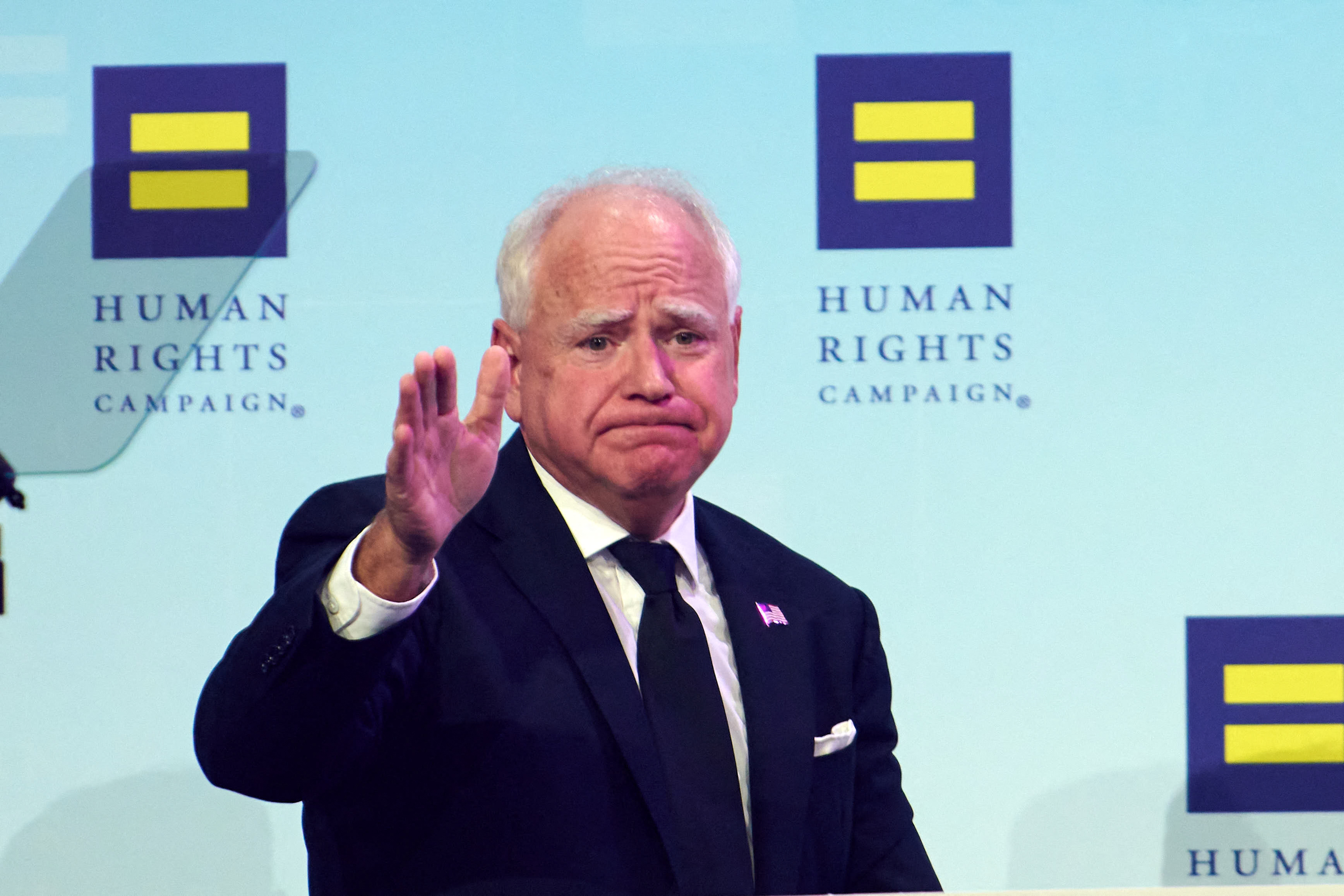Some experts suggest that reports of Minnesota Governor Tim Walz feeling anxious about the upcoming vice presidential debate are more about setting the stage than reflecting his true feelings.
As the Democratic vice presidential candidate takes on Donald Trump’s running mate, Ohio Senator JD Vance, in a CBS-moderated showdown on Tuesday night, this debate could be pivotal—it’s expected to be the last of the 2024 campaign.
Despite the typically lower stakes of vice presidential debates, tensions are heightened after Trump indicated he wouldn’t participate in further debates with Vice President Kamala Harris. CNN recently reported that Walz shared his concerns about being a “bad debater” with Harris back in August.
Senator Amy Klobuchar pointed out the contrasting backgrounds between Walz, a former public school teacher and football coach, and Vance, a Yale Law graduate, noting that Walz’s debate style might differ greatly from the typical lawyerly approach.

DOMINIC GWINN/Middle East Images/AFP/Getty Images
Bernard Tamas, a political science associate professor, posits that Democrats framing Walz as nervous could actually be a tactic to manage expectations, allowing him to surprise viewers with a strong performance. He emphasized that successful debaters can turn tricky questions into compelling arguments.
In preparing for the debate, Walz aims to position himself as more relatable and down-to-earth compared to Vance. He may also bring up the conservative Project 2025, linked to the GOP ticket, and has previously criticized Vance for aligning with Trump after being a critic.
Walz is known for his quick wit and has labeled Trump and company as “weird” during interviews. At a recent rally, he playfully challenged Vance with a reference to an odd claim from Vance’s memoir, teasing that he hopes Vance will show up for the debate.
This debate presents a key opportunity for both candidates to articulate their policies and connect with voters. According to a CBS News/YouGov poll, many potential viewers want to hear their takes on the economy, immigration, and America’s values, with reproductive health issues also spotlighted.
Tom Preston, a communication professor, believes that by portraying himself as the underdog, Walz can set the stage for a surprising victory. He suggests Walz could appeal to everyday voters, highlighting any contradictions in Vance’s stance.
Ultimately, both candidates will be judged not just on who was expected to win but on how effectively they engage with the issues that matter to the audience.
